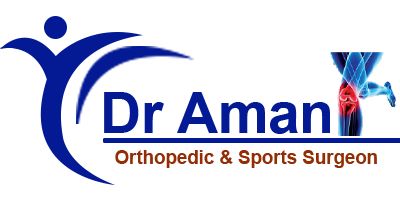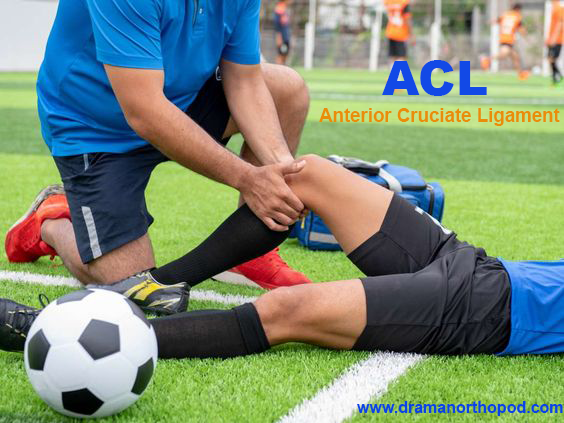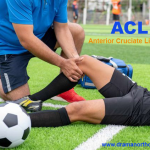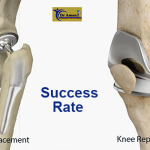An Anterior Cruciate Ligament (ACL) injury can be a significant concern, especially for athletes and those leading active lifestyles. This comprehensive guide will take an in-depth look at ACL surgery, covering its various types, the recovery process, and potential risks and complications that patients may encounter.
From the moment of injury to the completion of surgery and beyond, understanding the intricacies of ACL surgery is crucial for individuals facing this challenge. We’ll break down the procedure into digestible pieces, providing insights into the different surgical approaches, such as autografts, allografts, and synthetic options.
Moreover, we’ll explore the recovery journey after ACL surgery, detailing the rehabilitation process and the steps patients can take to regain strength, stability, and mobility in their knee joints. With a focus on simplicity and clarity, we’ll offer practical tips and advice to help patients navigate the post-surgery period with confidence and optimism.
While ACL surgery offers hope for restoring functionality and returning to an active lifestyle, it’s essential to acknowledge the potential risks and complications that may arise. We’ll address common concerns and provide insights into how patients can mitigate these risks, ensuring a smoother recovery and a successful outcome in the long run.
By empowering individuals with knowledge and understanding, this guide aims to demystify ACL surgery and provide a roadmap for navigating the challenges associated with this transformative journey. Whether you’re facing ACL surgery yourself or supporting a loved one through the process, this guide will serve as a valuable resource every step of the way.
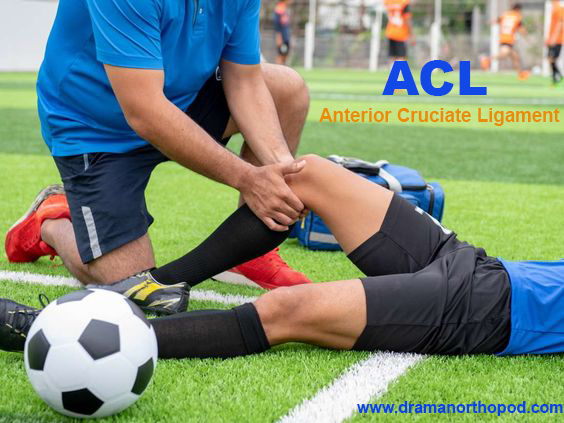
What is a Torn Anterior Cruciate Ligament (ACL)?
The Anterior Cruciate Ligament (ACL), a vital ligament in the knee joint, connects the thigh bone to the shin bone. When this ligament is partially or completely torn, it can result in instability and pain in the knee. During ACL surgery, the torn ligament is replaced with a graft, which can be sourced from various materials.
Types of Grafts Used for Anterior Cruciate Ligament Surgery
ACL surgery offers several options for grafts, each with its advantages and disadvantages:
- Autografts: These grafts are sourced from the patient’s body, commonly from the patellar tendon or hamstrings.Patellar Tendon: Known for faster healing due to bone-to-bone connection but may lead to anterior knee pain. Hamstrings: Offers less pain and no anterior knee discomfort but may have slower healing and complex graft fixation.
- Xenografts: Grafts sourced from animal tissue, though rare, may present complications.
- Synthetics: These include permanent prostheses, ligament augmentation devices, and carbon fibers.
- Allografts: Grafts sourced from cadavers, offer advantages such as smaller incisions and less surgery time but may be expensive and carry a risk of infection.
Symptoms of a Torn Anterior Cruciate Ligament
Recognizing the signs of a torn ACL is crucial:
- Severe knee pain
- Disfiguration or instability in the knee
- Inability to bear weight or walk
- Popping sensation during the injury
Causes of Anterior Cruciate Ligament Injury
ACL injuries often occur due to:
- Abrupt stops or changes in direction
- Direct impact on the knee
- Hypertension
When to Seek Medical Attention
If you experience symptoms of a torn ACL, consult an orthopedic surgeon immediately. DoctorFindy, an online health portal, offers assistance in finding renowned orthopedic surgeons for consultations and appointments.
Preparation for Anterior Cruciate Ligament Surgery
Prior to ACL surgery, physical therapy is essential to reduce pain and swelling, ensuring optimal conditions for surgery. Avoiding blood-thinning medications and following the surgeon’s recommendations are crucial steps in preparation
The Anterior Cruciate Ligament Surgery Procedure
ACL surgery typically involves the following steps:
- Anesthesia administration, often using epidural nerve block anesthesia.
- Arthroscopic examination of the knee joint to assess the extent of the injury.
- Harvesting of the graft, usually from the patient’s own body.
- Insertion of the graft into the knee joint, followed by fixation.
- Post-surgery rehabilitation to restore knee function and stability.
Post-Operative Care
After ACL surgery, proper care and rehabilitation are vital:
- Use of ice packs and elevation to reduce pain and swelling.
- Compliance with prescribed pain medications and knee braces.
- Participation in physical therapy to regain strength and mobility.
- Adherence to the surgeon’s instructions regarding crutch use and wound care.
Cost and Recovery Time
In Pakistan, the average cost of ACL reconstruction ranges from Rs. 2 to 4 lac. Recovery time varies but typically takes six to nine months for full healing, with athletes requiring up to a year to return to sports.
Risks and Complications
Despite its success rate, ACL surgery carries potential risks:
- Graft failure upon premature return to activity.
- Post-operative bleeding, infection, or stiffness in the knee.
- Long-term complications such as osteoarthritis.
Frequently Asked Questions
In the realm of ACL surgery, having a trusted and skilled orthopedic surgeon is paramount to ensuring a successful and smooth recovery. Dr. Aman, a distinguished orthopedic and sports surgeon based in Pakistan, stands out as a reliable professional in this field.
Dr. Aman’s expertise extends to two well-established clinics in Pakistan, strategically located for the convenience of his patients. The first clinic is situated at Premium International Hospital in G-8 Markaz, Islamabad, offering accessible orthopedic care in the heart of the capital. The second clinic is located at Mohmand Medical Complex in Dabgari Garden, Peshawar, providing specialized services to residents in and around the Peshawar region.
Patients can benefit from Dr. Aman’s extensive experience and commitment to excellence in orthopedic and sports medicine at these two prominent clinics. His clinics serve as hubs of quality healthcare, equipped with state-of-the-art facilities to ensure comprehensive and effective treatment for ACL injuries.
Whether you’re seeking consultation, considering ACL surgery, or in the process of post-operative care, Dr. Aman’s clinics provide a welcoming and professional environment. The clinics’ locations, combined with Dr. Aman’s expertise, offer patients a valuable resource in their journey to recovery from ACL injuries.
Choosing Dr. Aman as your orthopedic and sports surgeon means placing your trust in a medical professional dedicated to providing top-notch care and ensuring the best possible outcome for your ACL surgery. With clinics in Islamabad and Peshawar, Dr. Aman is well-positioned to cater to the orthopedic needs of individuals across Pakistan, contributing to a healthier and more active community.
